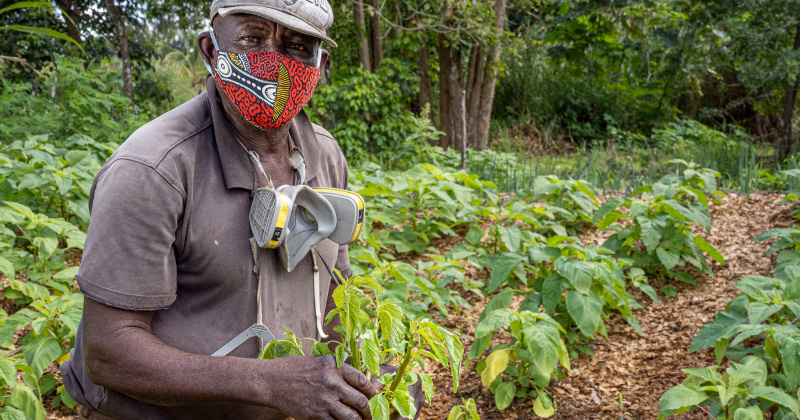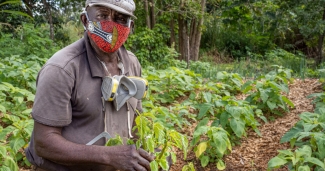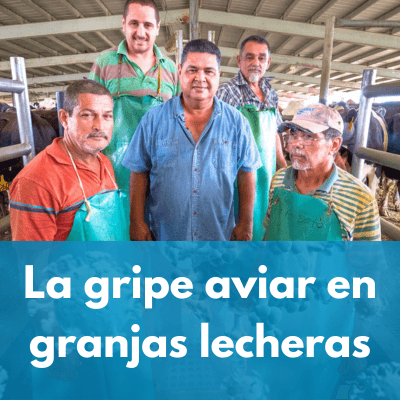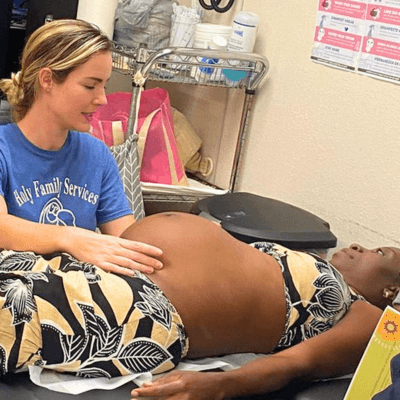Farmworkers & COVID-19: Partnerships to Protect Workers Highlighted in American Journal of Public Health

In 2020, America got a close-up look at the exploitative conditions, lack of basic occupational protections, poor access to health care, and institutional oppression that food and farm workers have endured for decades. These pre-existing occupational factors, paired with the continued operation of these workplaces as “essential,” made food workplaces ripe for COVID-19 outbreaks.
“As COVID-19 spread rapidly throughout the United States, among the populations most disproportionately affected were those on the front lines of the food system,” stated MCN’s Amy K. Liebman, MPA, Claire Seda, and Alma Galván, MHC, in a new article published in the American Journal of Public Health (AJPH). The article summarized food and farm workers’ occupational barriers to health before COVID-19, and the lack of protection from government and employers, that left them vulnerable to COVID-19 outbreaks despite their essential work to keep food systems functional. But the authors go further to focus on new partnerships that arose to protect these workers from COVID-19 infection, to reduce the many barriers and heightened risk of infection.
"Poultry workers, meatpackers, farmworkers, and other food workers were frequently not provided with basic protections from the virus, even as it became very clear what the best tools were,” like improved ventilation, respiratory protection, frequent testing, and physical distancing, noted Liebman. “As a result, we saw numerous outbreaks in the workplace. These outbreaks did not have to happen – we have the knowledge and tools to make workplaces safer. But we had no regulatory support from the federal government, leaving it to workers to protect themselves and employers to modify workplaces on their own.”
While thousands of workers were sickened by the virus, there are excellent examples of employers, health care workers, local and state government agencies, and advocates stepping up to keep the virus at bay. In the AJPH article, “Farmworkers and COVID-19: Community-Based Partnerships to Address Health and Safety,” some of these partnerships are highlighted. Maine Migrant Health, for example, joined with employers, the state's health department, state laboratory, and other state officials to test migrant farmworkers as they arrived, and to build infrastructure and support with quarantine and isolation. Many such partnerships proved useful as health centers ramped up efforts to help workers get access to COVID-19 vaccines.
"COVID-19 offers a deadly experiment where food and farm workers were abandoned by the federal agency charged with protecting them on the job -- OSHA,” the Occupational Safety and Health Administration, Liebman noted. "And we saw that depending solely on the good will and volunteerism of employers on a large scale did not work. However, the pandemic also offered us an opportunity to forge outstanding models where employers, local and state governments, community groups, and health care providers effectively partnered together to offer worker protections and access to important resources to keep workers safer on the job."
Read the article, "Farmworkers and COVID-19: Community-Based Partnerships to Address Health and Safety” on the American Journal of Public Health website.
The article appears in the August 2021 issue, which focuses on Social Justice for Marginalized Communities. See the full issue here.
Got some good news to share? Contact us on our social media pages above.
Return to the main blog page or sign up for blog updates here.
- Log in to post comments





